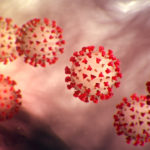Today, May 29, Nova Scotia is reporting four deaths related to COVID-19 and 33 new cases.
The deaths are:
— a man in his 80s in Western Zone
— two men in their 80s in Central Zone
— a woman in her 70s in Central Zone
This is the most deaths reported in one day since May 3, 2020, when six were reported. There have now been 84 COVID-19-related deaths in Nova Scotia.
Nova Scotia is also reporting 48 recoveries.
There are 21 new cases in Central Zone, seven in Eastern Zone, three in Western Zone and two in Northern Zone.
One case in Central Zone is a staff member at Ocean View Continuing Care Centre in Eastern Passage. Public health is providing direction on isolation and other requirements.
There is still community spread in Central Zone and limited community spread in Sydney. Northern and Western Zones continue to be closely monitored for community spread.
“My heart is breaking for the loved ones, friends and families of the four Nova Scotians who have died,” said Premier Iain Rankin. “On behalf of all Nova Scotians, I want to offer condolences. We need to protect everyone from this virus. Please get vaccinated, tested and follow the restrictions and public health measures.”
As of today, Nova Scotia has 566 active cases of COVID-19. There are 43 people in hospital, including 18 in ICU. The median age of people hospitalized in the third wave is 53 for non-ICU, and 56 for people in ICU.
On May 28, Nova Scotia Health Authority’s labs completed 5,837 tests.
“My prayers and condolences are with the families of the four people who passed away,” said Dr. Robert Strang, Nova Scotia’s chief medical officer of health. “I cannot emphasize enough how critical it is to follow both the letter and the spirit of the public health measures to prevent further illness and death from this virus. We must never forget that it is all around us, and that is why it is so important we loosen restrictions and reopen slowly and gradually.”
Since April 1, there have been 3,788 positive COVID-19 cases and 18 deaths. Cases range in age from under 10 to over 90. There are 3,204 resolved cases. Cumulative cases may change as data is updated in Panorama.
Travel within Nova Scotia:
Nova Scotians should remain as close to their home and community as possible, unless travel is essential for work, caregiving, necessary shopping or medical appointments, including vaccination appointments. In this instance, ‘community’ is defined as one’s municipality or county. Detailed information is available at https://novascotia.ca/coronavirus/restrictions-and-guidance/ .
Testing advice:
Nova Scotians with or without symptoms can book a test at https://covid-self-assessment.novascotia.ca/en for primary assessment centres across the province. Those with no symptoms are strongly encouraged to use pop-up sites if they want to be tested.
More information on testing can be found at https://www.nshealth.ca/coronavirustesting .
Anyone with COVID-19 symptoms is advised to self-isolate and book a COVID-19 test. Everyone they live with must also self-isolate until the person receives their first negative test result. If the test is positive, public health will advise everyone about what to do.
Anyone advised by public health that they were a close contact needs to complete a full 14-day quarantine, regardless of test results. If the close contact is symptomatic, everyone they live with must also self-isolate until the person receives their first negative test result. If the test is positive, public health will advise everyone about what to do.
Symptoms and self-assessment:
Nova Scotians should visit https://covid-self-assessment.novascotia.ca/ to do a self-assessment if in the past 48 hours they have had or are currently experiencing mild symptoms, including:
— fever (i.e. chills/sweats) or cough (new or worsening)
— sore throat
— runny nose/nasal congestion
— headache
— shortness of breath/difficulty breathing
People should call 811 if they cannot access the online self-assessment or wish to speak with a nurse about their symptoms.
Anyone with symptoms should immediately self-isolate and book a test.
Quick Facts:
— a state of emergency was declared under the Emergency Management Act on March 22, 2020, and extended to June 13, 2021
— due to an increased number of investigations, the exposure category (i.e., travel, close contact or under investigation) is not available by release time; a breakdown by zone identifying exposure categories will no longer be provided regularly
Additional Resources:
More information on COVID-19 case data, testing and vaccines is available at: https://novascotia.ca/coronavirus/data/
Nova Scotians can find accurate, up-to-date information, handwashing posters and fact sheets at: https://novascotia.ca/coronavirus
Businesses and other organizations can find information to help them safely reopen and operate at: https://novascotia.ca/reopening-nova-scotia
More information about public health text notifications of positive COVID-19 cases and close contacts is available here: https://www.nshealth.ca/news/public-health-begins-contacting-positive-covid-19-cases-close-contacts-text-message
More information on what is considered essential travel is available here: https://novascotia.ca/coronavirus/travel/#from-outside-atlantic-canada
Government of Canada: https://canada.ca/coronavirus or 1-833-784-4397 (toll-free)
The Mental Health Provincial Crisis Line is available 24/7 to anyone experiencing a mental health or addictions crisis, or someone concerned about them, by calling 1-888-429-8167 (toll-free)
Anyone needing help with a non-crisis mental health or addiction concern can call Community Mental Health and Addictions at 1-855-922-1122 (toll-free) weekdays 8:30 a.m. to 4:30 p.m.
Kids Help Phone is available 24/7 by calling 1-800-668-6868 (toll-free)
For help or information about domestic violence 24/7, call 1-855-225-0220 (toll-free)
Source: Release #notw





